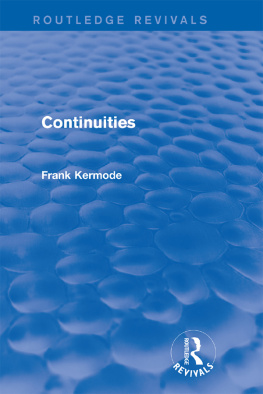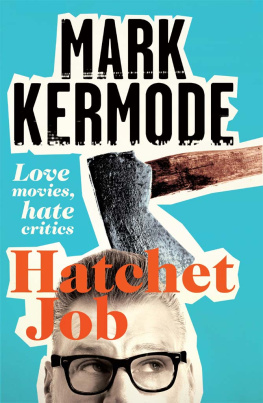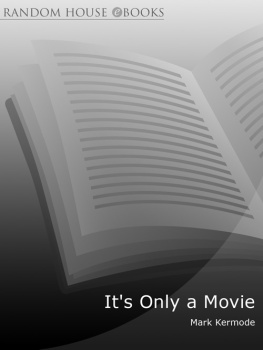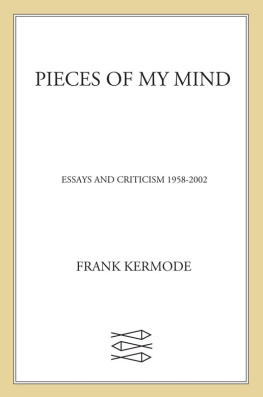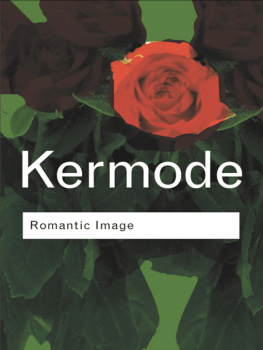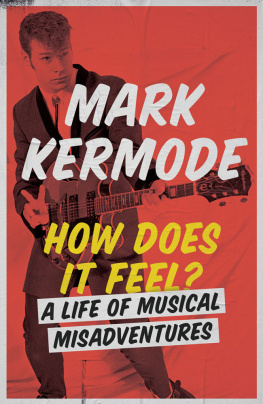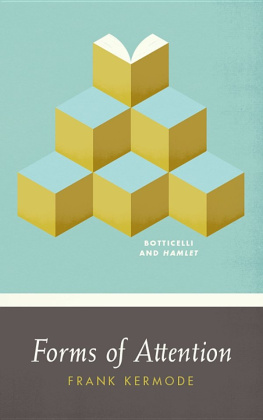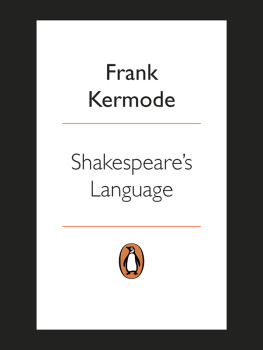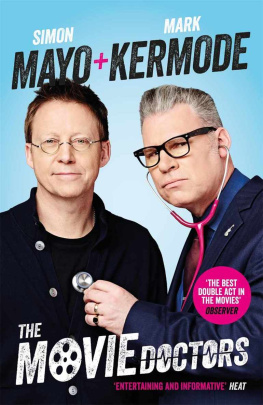Sir John Frank Kermode was a British literary critic best known for his work The Sense of an Ending: Studies in the Theory of Fiction (1967) and for his extensive book-reviewing and editing.
Kermode was born on the Isle of Man in November 1919, and was educated at Douglas High School and Liverpool University. He served in the Royal Navy during World War II for six years in total, much of it spent in Iceland.
In 1947, Kermode began his academic career as a lecturer at Durham University; he later taught at Reading University, followed by a stint at the University of Bristol. In 1967 he was named Lord Northcliffe Professor of Modern English Literature at University College London, a position he held until 1974, when he took the position of King Edward VII Professor of English Literature at Cambridge University he resigned from this post in 1982. He then moved to Columbia University in the New York City, where he was Julian Clarence Levi Professor Emeritus in the Humanities. From 197576 he held the Norton Lectureship at Harvard University. He was knighted in 1991.
Kermode died in Cambridge on 17 August 2010.

Discover books by Frank Kermode published by Bloomsbury Reader at
www.bloomsbury.com/FrankKermode
An Appetite for Poetry
Pleasing Myself
FRANK KERMODE
Pleasing Myself
FROM BEOWULF TO PHILIP ROTH

For copyright reasons, any images not belonging to the original author have been
removed from this book. The text has not been changed, and may still contain
references to missing images.
This electronic edition published in 2013 by Bloomsbury Reader
Bloomsbury Reader is a division of Bloomsbury Publishing Plc, 50 Bedford Square,
London WC1B 3DP
First published in Great Britain 2001 by Allen Lane The Penguin Press
Copyright 2001 Frank Kermode
All rights reserved
You may not copy, distribute, transmit, reproduce or otherwise
make available this publication (or any part of it) in any form, or by any means
(including without limitation electronic, digital, optical, mechanical, photocopying,
printing, recording or otherwise), without the prior written permission of the
publisher. Any person who does any unauthorised act in relation to this publication
may be liable to criminal prosecution and civil claims for damages.
The moral right of the author is asserted.
eISBN: 9781448211470
Visit www.bloomsburyreader.com to find out more about our authors and their books
You will find extracts, author interviews, author events and you can sign up for
newsletters to be the first to hear about our latest releases and special offers.
Contents
This collection of essays is a successor to The Uses of Error, published in 1990, and contains a selection of the pieces I wrote in the course of the next decade. Most of them were written for the London Review of Books, but some were New York Review commissions, and one appeared in The New Republic. What these journals have in common, besides their generosity in asking me to write for them, is an interest in the review-essay, anything from 2,500 to 4,500 words. Newspapers commonly want briefer notices, and lectures call for anything up to double the length of the review-essay, which occupies a comfortable middle ground.
It is in my view a satisfactory genre, for the writer can be moderately expansive and please himself, as well as modestly explanatory and willing to please, with due amenity, the sort of reader who reads these journals. It is almost true to say that this middle ground between the barbarous jargons and swollen books of the modern academy and the quick satisfactions of the newspaper review is nowadays cultivated only by a few journals like these, and it is just as well for our intellectual well-being that they should exist. The understanding between writer and reader is that the former will perform as an educated audience has a right to expect, and that the latter will, under those conditions, take pleasure in what may from time to time be a mildly strenuous bit of reading, justified by a faith that authors who write for these papers on the whole know what they are talking about, but are not so proud of that accomplishment that they cannot refrain from vainglorious displays of their professional prowess.
Fortunately it sometimes happens that one is asked to write about matters outside ones usual beat, so that the task becomes, gratifyingly, part of the reviewers education. I daresay I am not alone in finding this kind of work especially enjoyable. James Buchan, for example, gave me a reason to meditate about money, an interesting topic on which I was entirely ignorant; I have to say I remain so, but can now associate my dullness with the pleasure of reading and expounding Buchans book. Both Alain Corbin and Jonathan Raban revived ancient memories of the sea, for which, despite some fairly alarming maritime experiences in my youth, I still have the remnants of an infantile romantic attachment. Then again I have included some as it were extra-curricular pieces about painting, philosophy, and, in one instance (the notice of James Kugels book), Judaica. So I educate myself in public, which I take to be the reviewers privilege.
I thought it right and pious to put poets first, and, because to treat them in chronological order seemed as sensible as any other arrangement, the collection starts off with a recent piece about Beowulf and what the translators, who include the Nobel laureate Seamus Heaney, have made of it. After that come certain divagations, for example John Jones and Zachary Leader on poets revisions, to me a deeply interesting subject. In one case hereabouts I have included a review which, though respectful, as one always tries to be, condemns practices I want condemned. After the paintings and the philosophies and so forth, a few novelists bring up the rear: the curious case of Sylvia Townsend Warner, William Golding, whose posthumous novel even more a victim of changing fashion than the rest of his work seems to have been generally ignored, and finally Philip Roth and the novel which introduced the latest and finest phase of this great novelists work.
Most of my working life has been spent in universities, and most of my work has been addressed primarily to academic audiences; that sort of thing is not represented here, though I think I have occasionally allowed academic prejudices to intrude into these lighter exercises. It is true that for forty or more years I have had a second career outside the academy as a literary journalist and editor, so leading a double life which was, at its best, made possible, made fruitful, during my years at University College London. I have never had an extensive acquaintance in what Dr Leavis used to excoriate as the London literary world; nevertheless I have sometimes written about people I happened to know and like Henry Reed, for instance, and Roy Fuller. I knew William Empson at least as well as either of us wanted, and Adam Phillips is a friend, though I dont think Id have written about him differently if he hadnt been. The piece on Ern Malley contains a bit of autobiography, for it is virtually certain that no other living English critic was as close as I was to the wicked plots of literary Sydney in 1945, and, while that may not be thought much of an occasion for boasting, the temptation to cry I was there! was simply too strong. As I remarked above, one virtue of the review-essay is that it offers writers opportunities for such self-indulgence, surely permissible so long as they dont break their tacit contracts with the author under consideration and the readers of the review: both of which require that they provide a fair account of the book and write decently about it.


